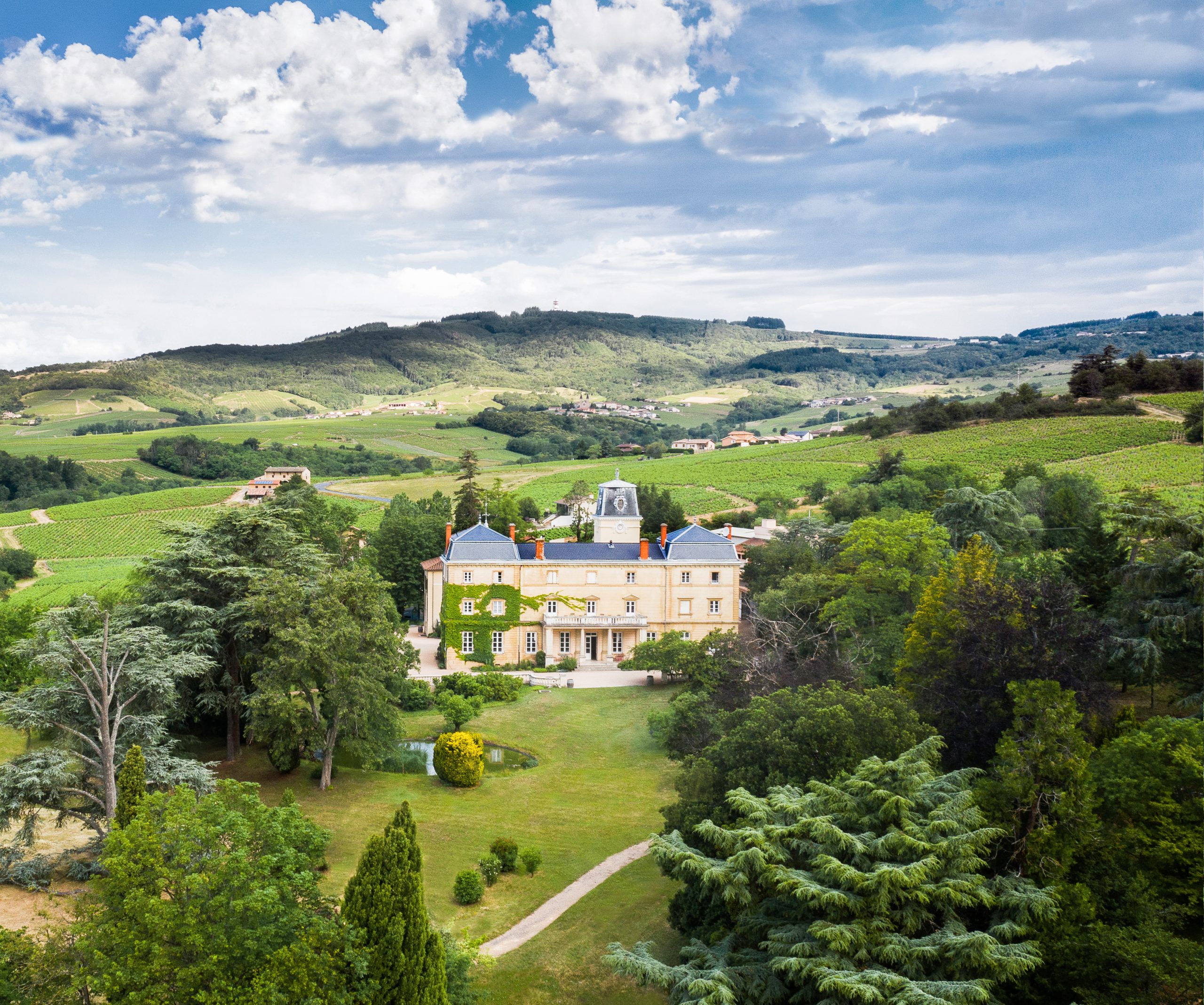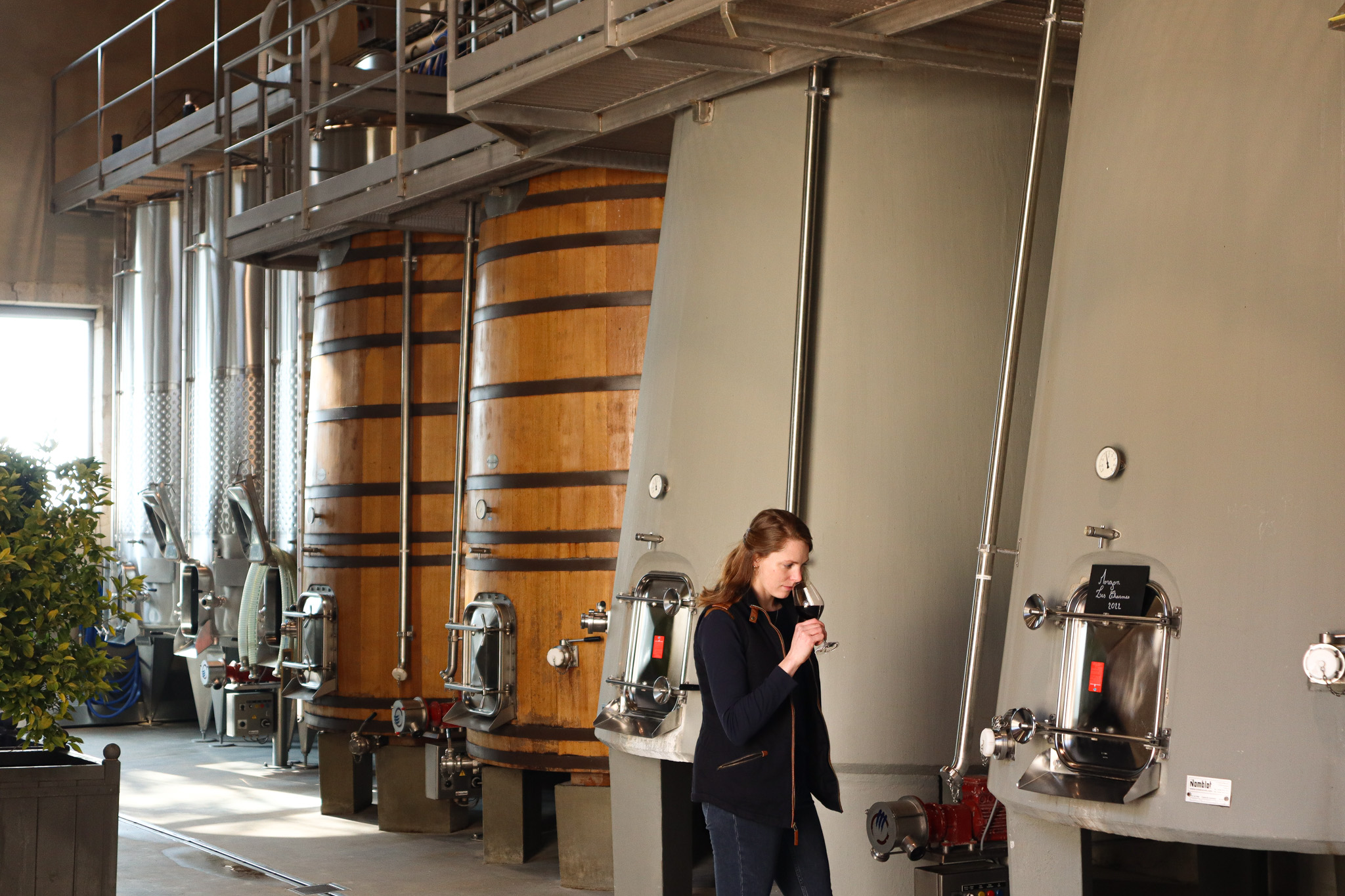This website uses cookies so that we can provide you with the best user experience possible. Cookie information is stored in your browser and performs functions such as recognising you when you return to our website and helping our team to understand which sections of the website you find most interesting and useful.
Château Bellevue: ‘We really want to keep our Beaujolais identity’
Winemaker Elodie Rousselot posits Beaujolais terroir and a modern approach as key to Bellevue’s success, though a famous neighbour also helps.

Beaujolais contains many contradictions. With millennia of winemaking behind it, the region has a claim to considerable prestige. Yet in the UK, it is still strongly associated with 1980s publicity stunts as Beaujolais Nouveau rushed to the city in London. And now, with an increased focus on sustainable production, Beaujolais is carving out a reputation with cool, in-the-know young consumers.
Have hosted a dinner at London’s oldest French restaurant, L’Escargot, you might think Château Bellevue is using the historical prestige of Beaujolais as a core selling point. Yet, in a wide-ranging tasting on the night, a more complex picture emerged. The reputation and heritage are indeed important, but there is also a modern streak to the approach.
Its young winemaker, Elodie Rousselot, certainly is not part of Beaujolais’ old guard. In post since 2022, her approach is to balance the prestige and heritage of the property against modern experimentation and a new approach. Her CV, which features stints in California, Australia, Chile and Bordeaux, as well as extensive training in Burgundy, hints at that blending of old and new.
That narrative fits the property too. Built more than 200 years ago, the chateau itself overlooks the village of Villié-Morgon. Its illustrious inhabitants have included a local court advisor, Russian aristocracy and the son of cinematographic pioneer Auguste Lumière, with its three hectares of botanical gardens further adding to its prestige.
However, since 2009 it has undergone a modern renewal. Its purchase by Maison Jean Loron was the catalyst for significant work, both on the main house and in the cellar. It readied the producer for the 21st Century and, in particular, the modern style Rousselot later came to adopt.
That style has emerged with terroir at the heart of Château Bellevue’s operations. Although Burgundy to the north of Beaujolais, with its formalised vineyard classifications, is often considered the home of terroir, Château Bellevue matches Burgunudian efforts by vinifying a significant number of smaller plots of Morgon. These include more famous climats, such as Côte du Py, and the small lieu-dits that pepper the landscape, such as Javernières.
“You don’t need to be a geologist to see the difference,” says Rousselot, explaining the complex mix of granite, glacial deposits, schist, clay and sandstone that make up the area. Indeed, she refers to the appellation as having “many Morgons” as evidence of the varied styles.
The redeveloped winery facilities help showcase that approach, with an emphasis on single vineyard winemaking. It allows the kind of microvinification that one might expect from Burgundy, with one tank available for every block of single vineyard production.

Rousselot has also made a conscious effort to move to a lighter, fresher style that better expresses Beaujolais terroir. Steering clear of the heavy ‘Parker wines’ and extended barrel ageing that used to be in vogue, she instead seeks out a more “nuanced” style. For instance, the chateau has invested in 750 litre amphorae, which can enable evolution in flavour without the aromatic influence of oak.
Yet, for all its expression of unique Beaujolais terroir, there are advantages to having a famous neighbour. Particularly in its Princesse Lieven Beaujolais Blanc, Rousselot believes Burgundy’s famous Chardonnay’s can be a path to consumers: “a good reference point for people abroad”.
As a small proportion of Beaujolais production – somewhere in the region of 4% of production – that shine of neighbouring prestige may well help producers market their white wines. However, the chateau’s selection of Morgon wines is establishing that no such approach is needed for the reds, Indeed, as she works on her “many Morgons” at Château Bellevue, Rousselot is committed to showing the region’s potential: “We really want to keep our Beaujolais identity.”
Related news
A new generation showcases Beaujolais' potential

